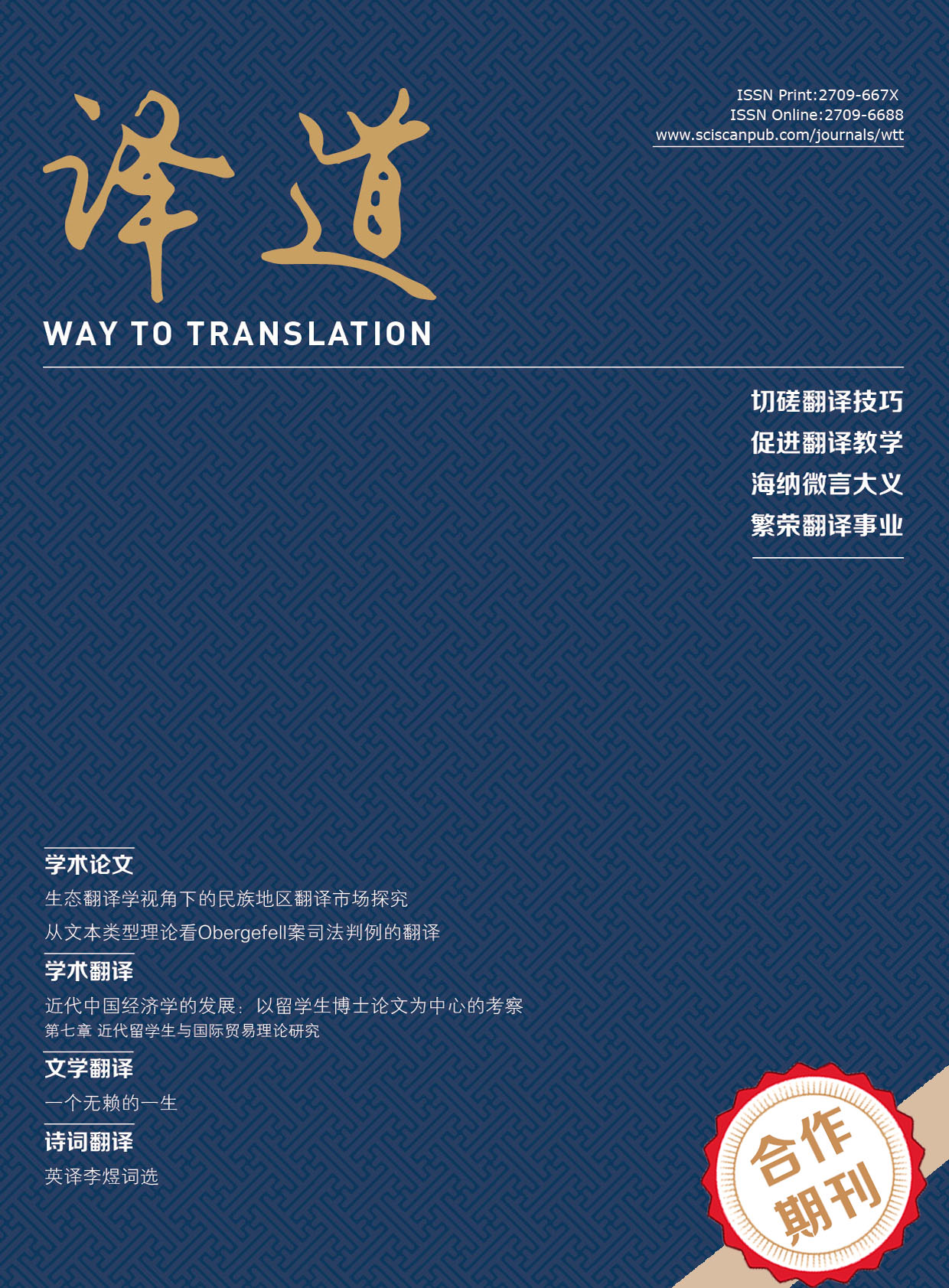Way to Translation
ISSN Print: 2709-667X
ISSN Online: 2709-6688
Contact Editorial Office
Subscribe to the latest published information from SCISCAN
法律翻译译后编辑模式研究 ——以《数字市场法案》和《2021 国际市场仲裁调查报告》 汉译为例
Research on Post-editing of Legal Translation —Taking the E-C Translation of Digital Market Act and 2021 International Arbitration Survey: Adapting Arbitration as Examples
- Authors: 黄宇柱
-
Information:
中国政法大学外国语学院,北京
-
Keywords:
Machine translation; Post-editing model; Legal translation; Adequacy; Acceptability机器翻译; 译后编辑模式; 法律翻译; 不忠实; 不通顺
- Abstract: The rigor and professionalism of legal translation fundamentally determine that the application of machine translation in the field of legal translation still faces multiple difficulties, and post-translation editing is needed to further improve the translation quality. At present, most researches on post-translation editing are based on linguistic concepts, and have never broken away from its framework. In this paper, the machine translation error model based on translation standards by Daems, Macken and Vandepitte is combined with posttranslation editing, and post-translation editing is divided into two categories: Adequacy and Acceptability. And the application of post-translation editing in legal translation is analyzed by summarizing the common postediting skills of legal translation. For example, checking terminology modification, pronoun pointing, checking sentences, highlighting logic and analyzing discourse, and reappearing the color of legal language. 法律翻译的严谨性和专业性从根本上决定了机器翻译在法律翻译领域的应用仍面临着多重困难,需要译后编辑进一步提高译文质量。目前大多数译后编辑研究都是以语言学概念为基础,未曾脱离其框架。本文将Daems、Macken 和Vandepitte 以翻译标准为基础的机器翻译错误模型与译后编辑相结合,将译后编辑分为不忠实和不通顺两类,分析译后编辑在法律翻译中的应用以及总结常用的法律翻译译后编辑技巧:例如查证术语修改、代词指明所指、检查语句,凸显逻辑和分析语篇再现法律语言色彩。
- DOI: https://doi.org/10.35534/wtt.0104005
- Cite: -
















